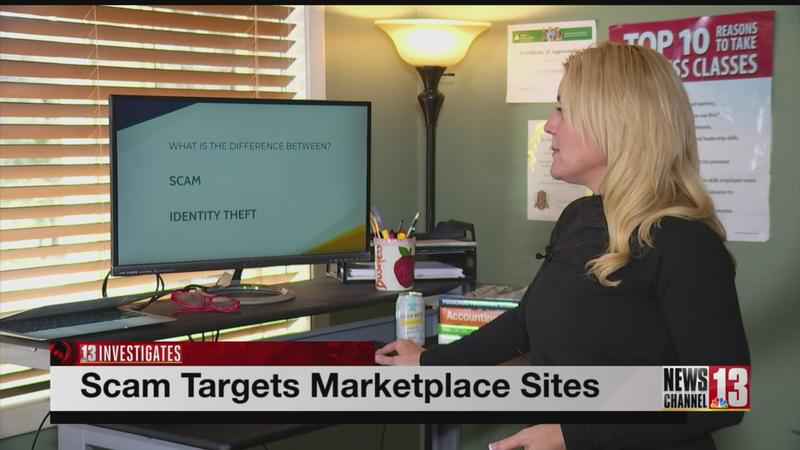Local teacher falls for new scam, uses it as lesson for students
A scam gaining popularity is targeting people in the Capital Region selling items on marketplace sites.
The scam fooled one woman from Saratoga County—until she realized she was about to give hard-earned money to someone who might not even exist.
Sarah Hubbard from Saratoga County told NewsChannel 13 she was shocked that she missed the signs this was a scam, and if it can happen to her, it can happen to anyone.
Hubbard is a mom and a teacher at Guilderland High School.
She recently posted her sons’ bunk beds for sale on Craigslist, hoping to make about $800 on the beds. Someone named Jessica messaged her.

“I’ve had so much success with Craigslist over the past 10 years, I’ve bought and sold without issue,” she said.
So she didn’t think too much of it when Jessica asked to use text message only to communicate. They made a deal on the price, though Hubbard felt slightly uneasy that Jessica refused to use Venmo.
“I inquired about Venmo, I was like, Venmo would be much easier and more convenient, and they told me they didn’t have Venmo, that they were older,” she explained.
Jessica insisted on sending a cashier’s check. And Hubbaed says she’s a busy working mom and just wanted to get it over with.
“Then everything became very urgent,” Hubbard recounted. “We will be overnighting you a cashier’s check which again, I never had any experience with.”
Hubbard had Jessica send the check to her work, her gut telling her not to give Jessica her home address.
“[The check] looked really authentic. So authentic,” she explained.
But Jessica sent considerably more money. She said Hubbard would have to take cash out before the check cleared and pay movers who would show up to get the beds.
Now very suspicious, Hubbard called her bank and the bank the check was made to look like it was from. They told her it was a textbook scam. And Hubbard knows something about the textbook on scams.
She teaches financial literacy and business to high school juniors and seniors.
“It was part of my embarrassment and my shame,” she said. “Hey, this can happen to anyone, including your teacher, including your financial literacy teacher.”
The movers never made it to her front door to collect the cash, and Hubbard cut off communication by telling Jessica she wasn’t comfortable with the transaction anymore. Her brush with crime is now a lesson for her students.
“We talk about the difference between a scam and fraud,” she explained, showing NewsChannel 13 the presentation she gives students to help them learn from personal experiences.
What are the takeaways?
She says, be suspicious when someone insists on a check. Don’t give them your home address. And think twice when the person uses urgency. Jessica said she needed the beds quickly because her daughter was in an accident.
“That pulling or tugging on the emotional heartstrings and the creating of urgency were all very common themes through their text messaging,” Hubbard said.
And just because a check looks real, doesn’t mean it is.
“They had that bank’s name on the check, with the routing numbers,” she said.
She says the dead giveaway is sending more money than both parties have agreed on. Jessica sent a check for more than $2,000 when they had agreed on less than $1,000.
“When I opened up the envelope, and saw the check, it was for considerably more than I was asking for the beds,” Hubbard explained.
Hubbard’s bank told her they’re seeing this scam a lot more, where the fraudster will ask the victim to take cash out and pay a third party before the check clears. She’s even received similar messages to Jessica’s on Facebook Marketplace recently.
She filed a report with the FBI’s Federal Internet Crime Complaint Center. Hubbard wanted to get her story out there to help others from losing their hard-earned money. She hopes people talk to their kids about spotting scam.
If you have a story for us, you can send us an email at 13investigates@wnyt.com.